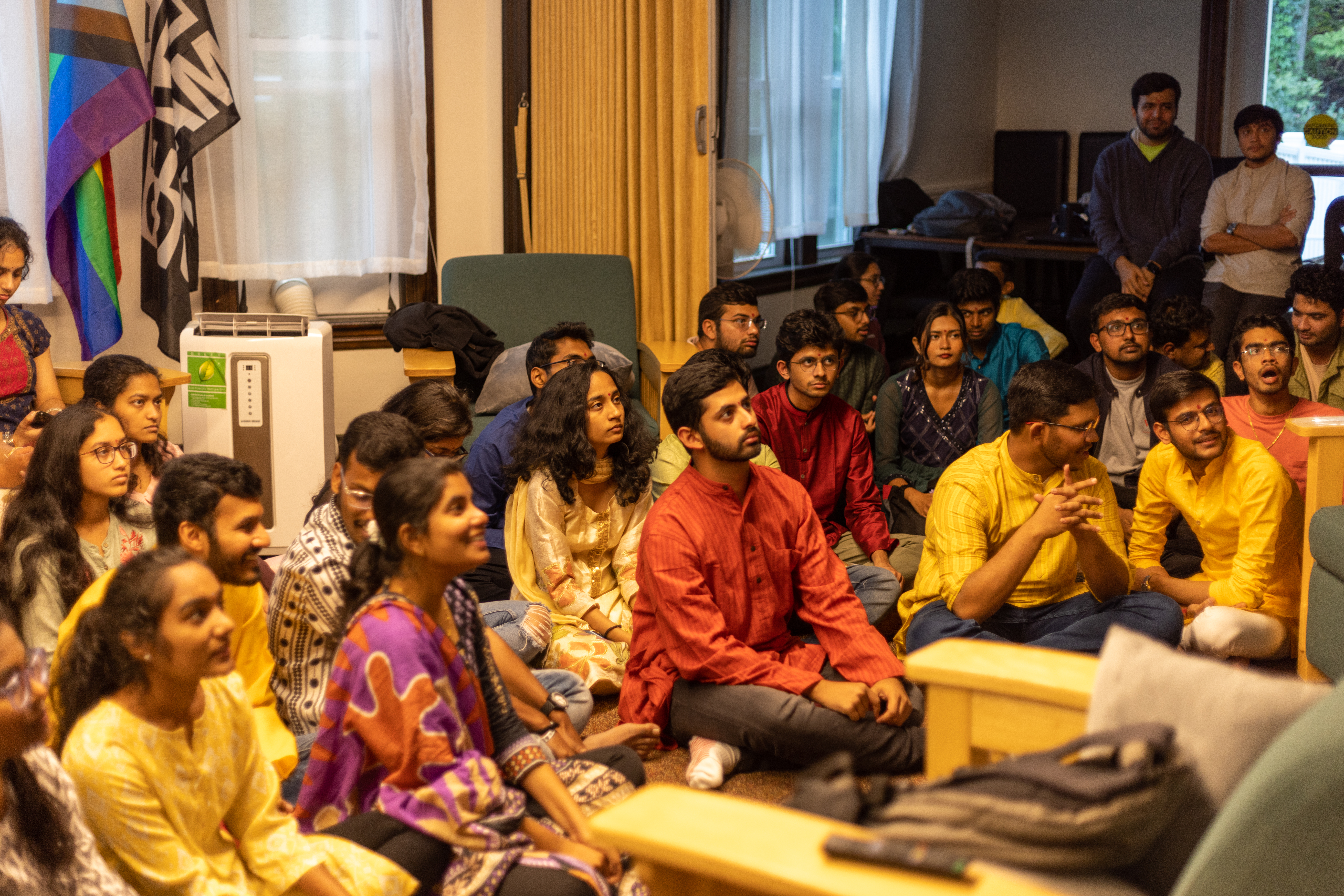Department(s):
Collegiate Religious Center 
Guidance for B-Term High Holy Days
Holy Days or Days of Awe are observed across religious and spiritual traditions. These dates and periods of observance mark sacred time in the practices of those who hold identities around religious and religio-cultural traditions. For our campus community, we strive to make the Holy Days Calendar and guidance as accurate as possible and to describe the holy days, their significance, and the nature of observance correctly. If you find a mistake, please let the Center know by email diversity@wpi.edu.
During B-Term, we recommend a few Holy days in which no major University sponsored events should be scheduled.
For our Hindu Community, Navaratri (October 15-24) is an annual Hindu festival observed in the honor of the divine feminine energy goddess Durga also referred to as Adi Parashakti. It spans over nine nights (and ten days). It is observed for different reasons and celebrated differently in various parts of the Hindu Indian cultural sphere. Devotees often celebrate Navaratri by fasting. On the final day, called Vijayadashami, the statues are either immersed in a water body such as a river or ocean, or the statue symbolizingevil is burnt with fireworks, marking the destruction of evil. Dussehra/Vijayadashami is observed for different reasons and celebrated differently in various parts of the Indian subcontinent. In the southern, eastern, northeastern, and some northern states of India, Vijayadashami marks the end of Durga Puja, remembering goddess Durga’s victory against the buffalo demon Mahishasura to restore and protect dharma. In the northern, central and western states, it marks the end of Ramlila and commemorates God Rama’s victory over the demon king Ravana. Towering effigies of Ravana, symbolizing evil, are burnt with fireworks, marking evil’s destruction. The festival also starts the preparations for Diwali. Diwali/Naraka Chaturdashi (November 12) is the Hindu festival of lights with its variations also celebrated in other Indian religions. It symbolizes the spiritual "victory of light over darkness, good over evil, and knowledge over ignorance". Diwali is celebrated during the Hindu lunisolar months of Ashvin and Kartika. It is typically celebrated by dressing in colorful clothing, lighting the inside and outside of homes with rows of lamps, lights or fireworks, or with rangoli, the art of using colorful sand or other materials to make designs on the floor. We also have a few recommendations for supporting the WPI Community:
-
Avoid scheduling important academic deadlines, events, and activities on the first and last day (two days).
-
Hindu students/employeesobserving maybe fasting, and/or schedule time off for temple visits and other celebrations.
-
Observance includes vegetarian diet. Individualsobserving would look for vegetarian food options on campus.
For our Christian Community, Advent is a season of four weeks of preparation for the coming of Christ, which observance in early December and ends in the commemoration of Christmas. These four weeks are a time of sacred preparation. We also have a few recommendations for supporting the WPI Community:
- Do not make the assumption that everyone is celebrating Christmas or that every person who is Christian would celebrate in the same way.
- Christian students and employees may be fasting.
For our Jewish Community, Hanukkahmarks a festival period to commemorate the rededication of the Second Temple, and is celebrated over eight days and nights, usually falling in December. Common celebration of Hanukkah included lighting a Hanukkiah, or Menorah.We also have a few recommendations for supporting the WPI Community:
- Special foods may be shared during this time.
- Academics and work are permitted according to typical observance.
- If planning an event, provide food accommodation as requested (kosher restrictions might apply).
For our African Diaspora Community, Kwanzaa takes inspiration from the start of the harvest season in Africa, when the first crops are gathered. It’s a time that’s been celebrated throughout the continent for generations. During the week, families gather to give gifts, share feasts, and light candles in honor of their ancestors and their hopes for the future. Though Kwanzaa became a mainstream holiday in the 1980s, its traditions have faded in recent years. We also have a few recommendations for supporting the WPI Community:
- Be aware of Kwanzaa as a cultural celebration for African American employees.
- Because Kwanzaa focuses on community, staff members may be encouraged to celebrate African American culture with their work community, e.g., sharing of food, cultural stories, etc.
- Because Kwanzaa and the winter break holidays overlap, scheduling employees’ time off will need attention.
While there are Holy Days during B-Term, these are a few werecommend avoiding in your scheduling. Although students are not automatically excused from class for observance, they may work with their course instructors to make accommodations. Faculty/Staff members may request paid time off for these observances. Supervisors are highly encouraged to support their preference to take leave for their religious observance.
Most importantly, communication is key. The best thing community members can do is to ask how to support individuals observing a holiday.